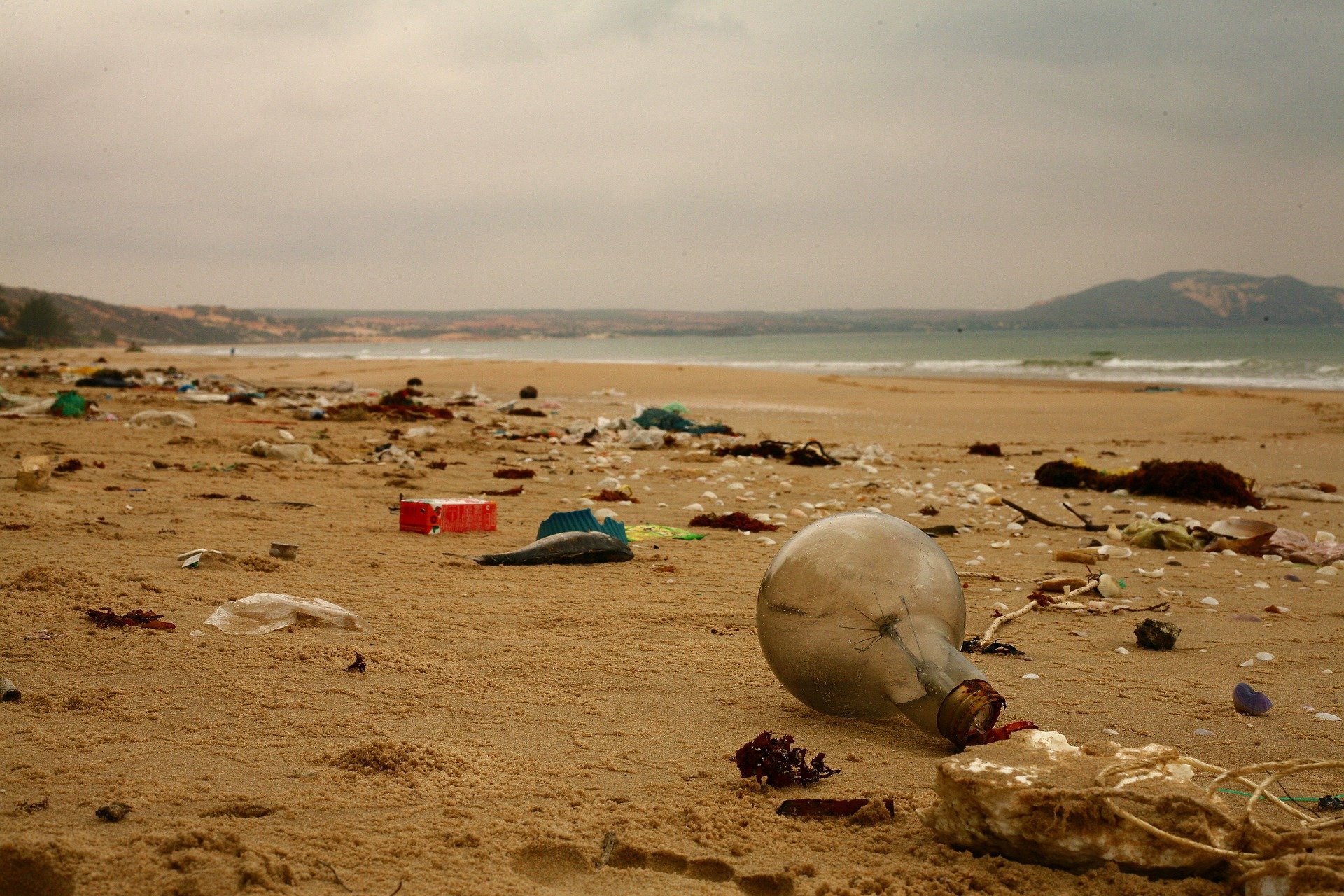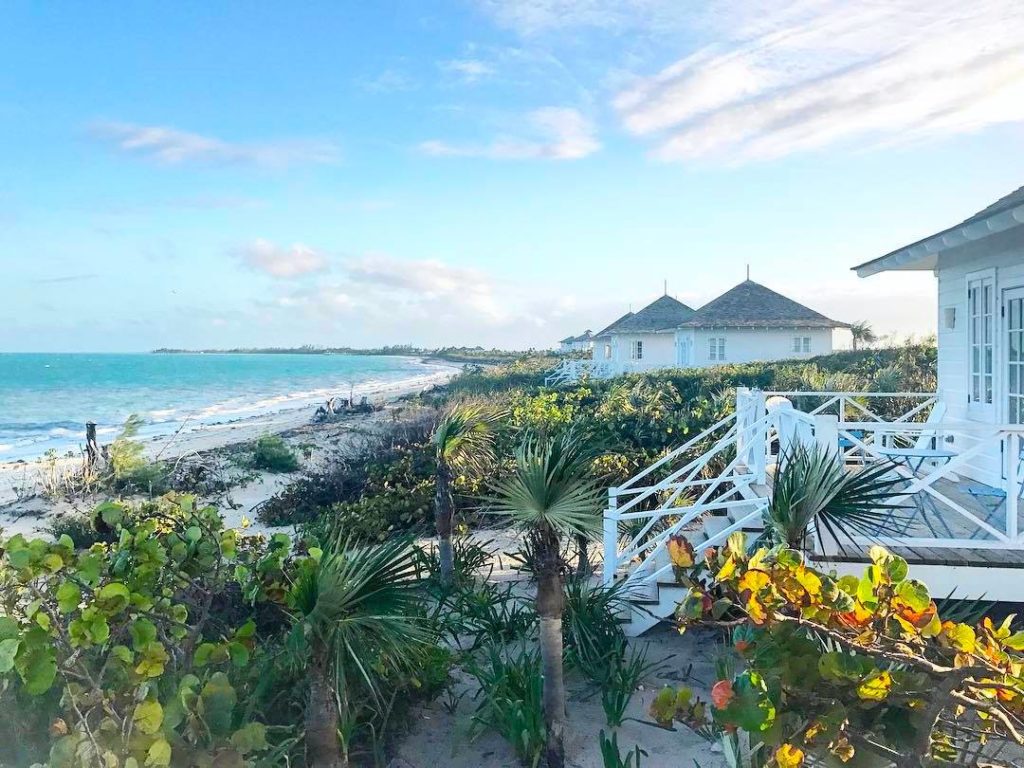
Plastic Versus the Oceans
Plastic pollution is an ever-growing threat to life in the ocean – a fact that’s now become normalised. But how much does the average person actually know about plastic pollution? We’re so accustomed to it that it’s melted into the background of our collective consciousness and therein lies the problem – we can’t tackle a threat we don’t think about.
Take the Great Pacific Garbage Patch as an example. I hadn’t heard of it until I started research for this article and was genuinely appalled to find a looming vortex of rubbish the size of Texas swirling away in the ocean. Perhaps ‘away’ isn’t the right phrase: the Garbage Patch is here to stay, and is growing rapidly.
The Devastating Reality of Marine Plastic Pollution
Every year 18 billion pounds of plastic is dumped into the ocean and most ends up in collections of debris like The Great Pacific Garbage Patch, or washed up on beaches. These phenomena cause all kinds of problems for marine and human life alike. The Garbage Patch consists almost entirely of micro-plastics – microscopic pieces of plastic that can’t be seen by the naked eye and make the water look like a cloudy soup. Mixed in this plastic soup are larger items like bottle caps and shoes – the very items found in the stomachs of wild animals during autopsies, after they mistake the colourful plastics for food and feed it to their children.
Humans are not immune to plastic pollution either, especially those in places reliant on tourism, like the Caribbean. A total of 37 individual economies are supported by tourism in the Caribbean Sea and without the attraction of their iconic pristine beaches, a devastating cycle will ensue: tourism will start to dwindle as tourists go elsewhere, the island economies will take a hit, and locals will lose vital income. Plastic pollution is increasing and damaging our planet; try as I might, I can’t think of a solution. We can consider it lucky then that a nineteen-year-old from the Midlands isn’t in charge of solving the crisis of marine pollution, but who is?
Everyone is Responsible
When a problem spans the globe no one country is responsible, and with The Garbage Patch so far from any coastline, no country has yet to take responsibility to fund the cleanup. According to Charles Moore, the man who discovered the patch, cleaning it up would “bankrupt any country” that tried which, I imagine, is why no country has. There’s not a lot we can do as individuals.
We’ve all heard the mantra: reduce, reuse, recycle, and while it’s a good attempt, it won’t make a dent when companies like Coca-Cola have a plastic footprint of 2.9 billion tonnes per year and no intentions of changing. With information like this, it’s hard not to feel powerless – it almost feels like any attempt is in vain. The good news is some people are taking matters into their own hands, with one person in the Bahamas proving how we can all make a difference.
The Bright Side – Local Heroes
In 2012 Kristal Ambrose was sailing across the Pacific Ocean to learn about the Western Garbage Patch (one of the two collections that make up the Great Pacific Patch) but little did she know, upon her return to the Bahamas she was going to be inspired to ignite a plastic-free movement on her home shores. Her love for the ocean inspired her to develop and create The Bahamas Plastic Movement (BPM). This non-profit organisation aims to raise awareness of and find solutions to the problems that the oceans face in regards to plastic pollution. They offer tuition-free educational programs, designed to educate Bahamian students on the marine environment and how they can make a difference in protecting the ocean.
In 2018 Kristal Ambrose, alongside her youth delegation, succeeded in getting the government of The Bahamas to ban single-use plastics, styrofoam, and balloon releases in the entire country by 2020.
The volunteers and students who make up BPM participate in annual large scale beach cleanups, having removed 10,000lbs of plastic debris from multiple beaches across the Bahamas since the project began.
What Can We Do
If you’re anything like me then you’ll often wonder how on earth you can help a problem as serious as this, without unthinkable amounts of money or a degree in marine biology. The organisations and companies responsible for the pollution are not going to change their ways without serious pressure, but, what can we do in the meantime? On a small level, sharing articles like this can help raise awareness and educate people.
Getting involved in charities and organisations, like the BPM, working to find solutions and fight the problem is also another route; take part in beach clean-ups, donate to organisations and spread the word until enough people are shouting about these problems and the necessary changes can be made. Economic support is crucial in the fight against plastic pollution, so help out by travelling there, seeing it for yourself, and getting involved during your trip.
If that sounds appealing then Pure Breaks is here to help, offering bespoke experiences at stunning destinations across the world, providing you with an incredible holiday while helping the planet. These hand-selected hotels and ecolodges create unique and authentic experiences, utilising sustainable and eco-friendly initiatives as well as keeping close ties with the local community. The problem of plastic pollution can be a daunting prospect – so much so that you can feel paralysed in your effort to help, but the actions of local communities and passionate individuals show the power of the people.
A Happy Ending?
We still have a long way to go in regards to fixing plastic pollution, and the ocean might never recover from the devastation we’ve caused, but with people like Kristal Ambrose caring so passionately, there’s hope and a tiny bit of sunshine on the horizon.
“Kristal Ambrose’s story really resonated with me because I was born in Hong Kong and the last time I visited in 2015 I was shocked to see how bad the air pollution had gotten in the three years since I had moved away. Seeing a place that you consider home become so polluted is heartbreaking.”


